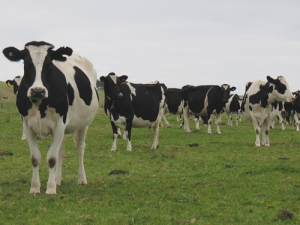Ospri brings Bovine TB testing in-house
The move to bring bovine TB testing in-house at Ospri officially started this month, as a team of 37 skilled and experienced technicians begin work with the disease eradication agency.
 Thanks to pest management, bovine tuberculosis levels in deer and cattle herds are at the lowest ever reported
Thanks to pest management, bovine tuberculosis levels in deer and cattle herds are at the lowest ever reported
The National Policy Direction for Pest Management has come into effect.
MPI’s director of biosecurity and animal welfare policy, Julie Collins, says established pests are estimated to cost New Zealand’s primary sector up to $3.3 billion annually.
“Even small improvements to New Zealand’s pest management system could save millions of dollars in the long term.”
“The National Direction will support national and regional management of challenging pest issues such as wilding conifers, by ensuring consistent approaches to the way rules are set across New Zealand and that landowner obligations are clearly signalled and underpinned by robust analysis.”
“The National Direction sets overarching requirements for national and regional pest and pathway management plans, and small-scale management programmes. It will ensure that these plans and programmes across New Zealand are clear and consistent, and provide the best value.”
National and regional pest management plans provide significant benefits for New Zealand. For example, the national pest management plan for bovine tuberculosis helps protect New Zealand’s dairy, beef and deer production, and enhances New Zealand’s reputation as a responsible producer of dairy and red meat products.
The plan has resulted in bovine tuberculosis levels in deer and cattle herds being the lowest ever reported.
The National Direction will also require all landowners in New Zealand, regardless of tenure, to manage pests spilling across boundaries onto neighbouring properties.
Those who will be directly affected by the National Direction include all regional councils and Kiwifruit Vine Health, the National Beekeepers Association, and OSPRI New Zealand. All these organisations have regional and national plans that manage pests and diseases that affect New Zealand.
Legal controls on the movement of fruits and vegetables are now in place in Auckland’s Mt Roskill suburb, says Biosecurity New Zealand Commissioner North Mike Inglis.
Arable growers worried that some weeds in their crops may have developed herbicide resistance can now get the suspected plants tested for free.
Fruit growers and exporters are worried following the discovery of a male Queensland fruit fly in Auckland this week.
Dairy prices have jumped in the overnight Global Dairy Trade (GDT) auction, breaking a five-month negative streak.
Alliance Group chief executive Willie Wiese is leaving the company after three years in the role.
A booklet produced in 2025 by the Rotoiti 15 trust, Department of Conservation and Scion – now part of the Bioeconomy Science Institute – aims to help people identify insect pests and diseases.